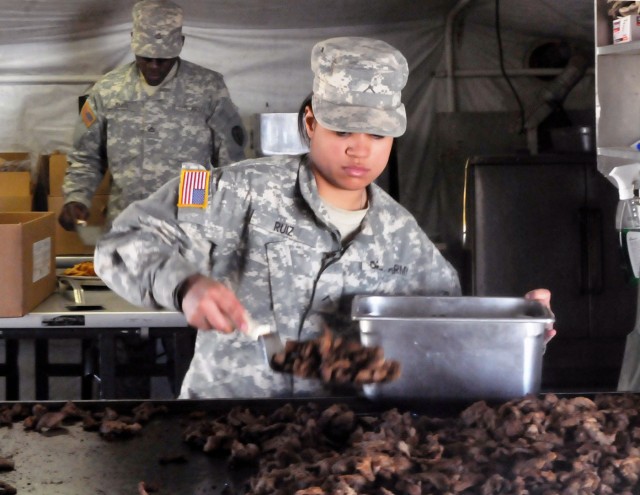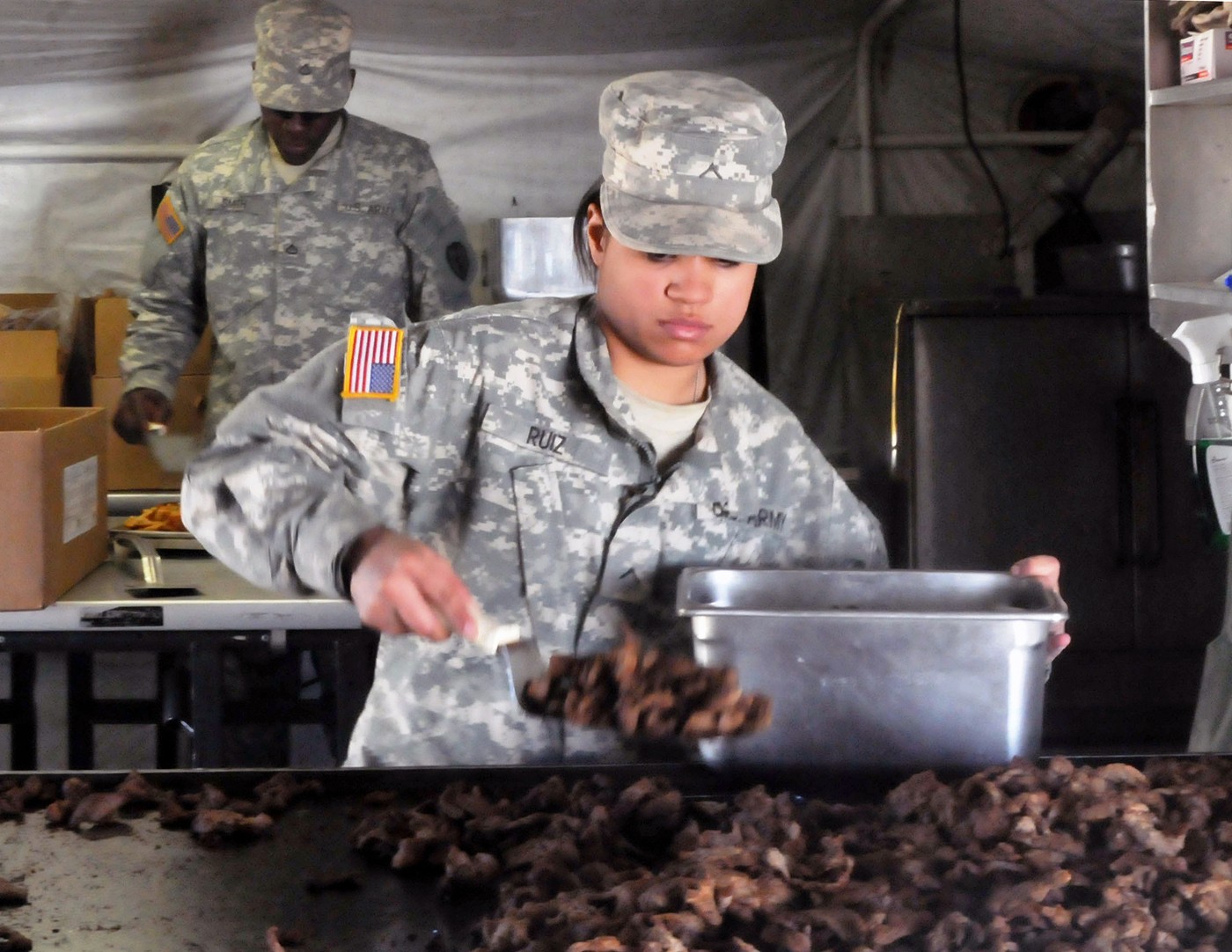
FORT IRWIN, Calif. - Feeding more than 4,000 hungry mouths can be difficult for even the most experienced cooks.
It's an even bigger challenge when those mouths belong to hungry Soldiers training in the Mojave Desert 12 hours a day at the U.S. Army's National Training Center at Fort Irwin, Calif.
Although the conditions might sound like a nightmare to many in the food-service industry, the cooks of the 25th Brigade Support Battalion, 1st Stryker Brigade Combat Team, 25th Infantry Division, from Fort Wainwright, Alaska, meet that challenge twice a day during their monthlong rotation at the NTC.
"It can be very challenging to meet the needs of so many Soldiers, but we all love our job and I wouldn't want to do any other job in the military," said Spc. Yvonna Johnson, a 25th BSB cook.
Johnson is a member of a 10-Soldier group called the field feeding team.
A typical day for the team starts before most Soldiers wake up and ends after everyone has turned in for the night. On average, they work 17-hour days and are responsible for prepping, cooking and distributing more than 12,000 pounds of food, across the brigade, each day.
"Other Soldiers think we have it easy but it is tough," said Pfc. Justin Smith, 25th BSB cook. "It's a lot of work that some Soldiers learn to appreciate and, unfortunately, some don't."
Although cooks are often overlooked as an important part of combat operations, Johnson said most Soldiers would agree that without food even the strongest Army would fail.
As important as their ability to cook is to the mission, it's not the only thing Army cooks contribute to the fight.
In addition to their responsibilities behind the grill, they set up hand-washing stations, manage trash bins and are trained in advanced field sanitation operations.
Field sanitation teams provide beneficial and complimentary service to the field feeding teams and provide a clean environment for the cooks - something Johnson says is more important than the actual taste of the food.
"The whole environment is dirt ... so it's important that we have a sanitary team to help prevent our Soldiers from getting sick," Johnson said. "Everything we do has to be with the highest quality of sanitation."
"Soldiers don't realize that we actually do a lot more than just cook," Johnson said. "We try our best to make sure the Soldiers are happy and that Soldiers are given the highest quality of sanitation possible so we don't have Soldiers getting sick."
Johnson said things can get difficult sometimes trying to balance so many different responsibilities but said she wouldn't trade it for the world.
"At the end of the day we are cooks and we are happy to do our job and for those who aren't, I find ways to motivate them," Johnson said.

Social Sharing